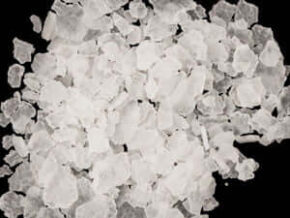
Salt has the power to split rocks
18 September 2016
View PostPosted on 18 September 2016 2 min read
Here’s a scientific fact you may not be familiar with:
Salt, has the power to split rocks.
This probably rings true for smashing a pebble underneath one of our salt blocks, but I’m actually referring to the fact that this is a commonly overlooked form of weathering. It is one that is quite similar to freeze thaw weathering in mechanism. Freeze thaw weathering is the process of water seeping into cracks and faults in rocks, freezing and expanding and gradually widening them until the rock is broken down.
In the process I’m writing about, salts crystalise from the water that seeps into the cracks and faults in rocks instead of the water freezing and forming ice. These crystals expand as they form and are subsequently affected by temperature changes – warmth causes them to expand further.
This expansion exerts pressure on the containing rock, which causes it to break down. This type of weathering is known as salt wedging, which has the technical name haloclasty. Warmth furthers the effect of this by causing the crystals to expand, which exerts pressure on the rock confining them.
Sodium sulfate, magnesium sulfate and calcium chloride are the main culprits. These salts can expand up to three times in volume during this process.
Although a slight divergence from some of our usual blog material, at Harvey Water Softeners we find the science behind the materials and components we deal with absolutely fascinating and strongly advocate the use of science to provide positive evidence to substantiate our claims.
This is something we’re planning to do more of in the future, so for now – watch this space!
To keep your water softener running smoothly, you’ll need to replace the salt in your system regularly. Check the salt chamber – if your water softener salt is running out, stock up on pure Grade A / food quality salt for home delivery from our online shop. Buy now.
Buy Replacement Salt – High quality, great value softener salt delivered direct to your door – Buy Salt